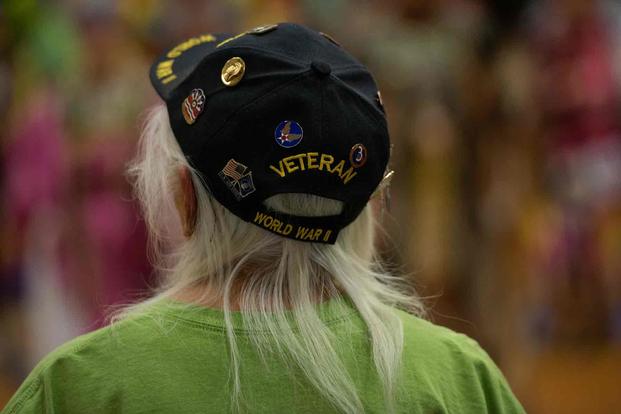The Department of Veterans Affairs says it's saved Native American and Alaska Native veterans about $2.5 million in medical costs since exempting them from copayments last year.
The VA has waived or exempted about 143,000 copays for some 3,800 veterans since starting the program, according to a news release published Tuesday. The exemption covers copays for VA medical appointments, urgent care visits and prescriptions.
Congress mandated the copay exemption as part of the Johnny Isakson and David P. Roe, M.D. Veterans Health Care and Benefits Improvement Act of 2020, saying the VA could no longer collect copays from veterans who meet the definition of "Indian" or "urban Indian" under the Indian Health Care Improvement Act.
Read Next: Lighter, More Protection: Army Next-Gen Helmet Now Fielded to 82nd Airborne Division Soldiers
The VA missed its Jan. 5, 2022, deadline to implement the law. It began exempting copays on April 4 of last year and at the same time began reimbursing veterans who'd paid copays for VA health care between the deadline and the start of the program. It's still reimbursing those copays now.
The VA estimated at the time of launching the fee waivers that 150,000 Native American and Alaska Native veterans in the U.S. were eligible for copay-free health care from the Indian Health Service or tribal health programs.
But the IHS and its programs have typically been underfunded, officials said, causing delays in health care. The new rule aimed to provide the same fee waiver at the VA. Copays such as those for domiciliary (at-home) care, institutional respite care (short-term care in a long-term facility), or nursing home care are not exempt.
"To live their best lives," veterans "need access to affordable health care," said VA Undersecretary for Health Dr. Shereef Elnahal in the news release. "This copayment exemption honors our treaties with sovereign nations and the distinguished service" of Native American and Alaska Native veterans.
Also in 2023, the VA slashed the starting rate that it charged in the Native American Direct Loan Program from 6% to 2.5%.
To receive the medical copay waivers, veterans must qualify as Native American or Alaska Native, and provide official tribal documentation confirming that they meet the eligibility requirements of the Indian Health Care Improvement Act.
Examples of documentation include a tribal ID card, a tribal census document, a Certificate of Degree of Indian Blood or Certificate of Degree of Alaska Native Blood from the Bureau of Indian Affairs, or a document on official letterhead showing membership in a federally recognized tribe. VA Form 10-334, Tribal Documentation Form, is also required.
Related: VA to Waive Medical Copays for Native American, Alaskan Native Vets













